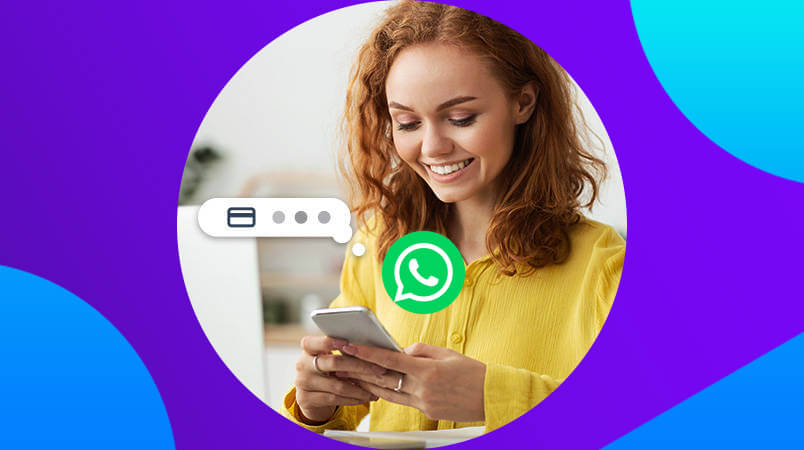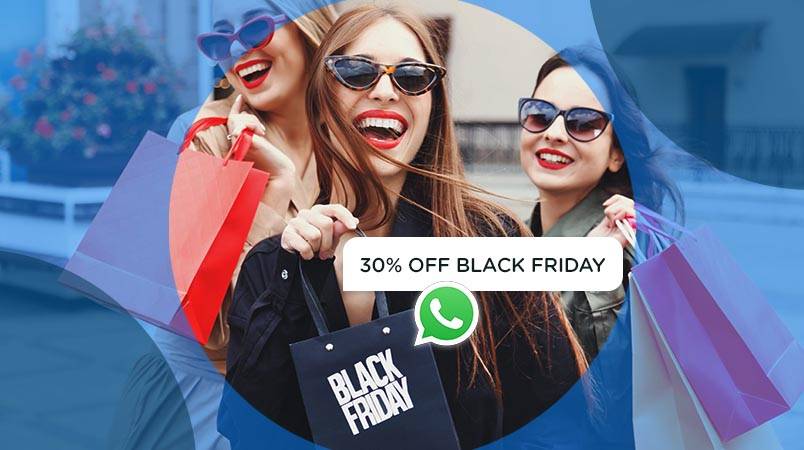I. What Is Mobile Commerce?
Mobile commerce (also known as mcommerce or m-commerce) refers to shopping, banking, or making payments online through mobile devices like smartphones or tablets. Mobile commerce is the new form of ecommerce (electronic commerce), which refers to sales transactions conducted online via the internet.
Once retailers and industries started marketing online, mobile devices' widespread use demanded that mobile-friendly transactions be possible anytime and anywhere. As consumers became more attached to their smart devices and more comfortable shopping online, it was only a matter of time before mobile commerce growth reflected these trends in consumer behavior.
Mobile commerce is expected to account for 45% of the total U.S. ecommerce market by the end of 2020, reaching over $284 billion in sales — and it won't stop there. Mobile commerce is on the rise, and businesses worldwide are embracing it to boost sales and reach customers where they're most active and engaged.
II. Types of Mobile Commerce
Let’s review the three components of mobile commerce:
Mobile shopping
Mobile payments
Mobile banking
1. Mobile Shopping
Shopping is probably the first thing that comes to mind when you think of mobile commerce. Mobile shopping is ecommerce shopping from your mobile device.
Companies that succeed in mobile shopping focus on mobile-friendly websites with lightning-fast page speed and image load time. They feature responsive designs that adapt to various screen sizes and resolutions for the best customer experience.
In addition to ecommerce websites, mobile shopping is now possible through dedicated apps and social media platforms like Instagram, Pinterest, Facebook, and Twitter. The rise of social media influencers has also contributed to the popularity of shopping through social media platforms.
2. Mobile Payments
Mobile payments include any money transaction made via a mobile device. Mobile payments allow people to make purchases and transfer money conveniently using a credit or debit card linked to their mobile phones. Mobile wallets, closed loop mobile payments, and money transfer apps are three common types of mobile payments.
Mobile Wallets
A mobile wallet is like a digital wallet that allows you to make purchases on your mobile device without using cash or swiping a credit card. A mobile wallet app safely stores your credit and debit card information, and purchases are authenticated via a PIN or touch ID.
Popular mobile wallets include:
Apple Pay
Amazon Pay
Google Pay
PayPal
Samsung Pay
Closed Loop Mobile Payments
Closed loop mobile payments resemble mobile wallets, but use a dedicated mobile app to link to a single brand or store. Credit cards like American Express, Mastercard, and Visa, which are accepted at various retailers, are called open loop cards.
Closed loop cards allow users to add their card details to the mobile app, which is then used to pay for their in-store purchases. Many point-of-sale (POS) systems today allow customers to open up their digital wallet and pay via touchless payment, where they place their mobile device close to the reader to process the transaction.
Businesses using closed loop cards include:
Amazon
Starbucks
Walmart
Taco Bell
Money Transfer Apps
Money transfer apps allow you to send and receive money via your mobile device. Users link their bank accounts or debit cards directly to the app. Financial transactions happen between users, with bank information remaining transparent.
While money is withdrawn from the sender’s account immediately, the recipient must choose to deposit the funds on their end or keep them as a balance to use later.
Google and PayPal were among the first to adopt money transfer functionality, but money transfer apps have expanded to include:
Venmo
WorldRemit
Zelle
TransferWise
CashApp
3. Mobile Banking
Mobile banking enables you to make bank or financial transactions on a mobile device. Mobile banking apps allow you to pay bills, transfer money between accounts, send money, or even deposit checks remotely.
Most routine transactions can be accomplished quickly, sometimes with the use of messaging apps and conversational chatbots. Banks can use mobile banking apps to alert customers to suspicious activity via text, short-circuiting fraudulent behavior and identity theft attempts.
III. 6 Advantages of Mobile Commerce
1. Offer 24/7 Convenience
Customers can shop anytime and from anywhere. With mobile commerce, your online store never closes. The rise of conversational chatbots means brands can engage in conversations with customers at any time, even when the business is not online.
2. Speed Customers to Checkout
Mcommerce sites often load faster than standard ecommerce sites due to mobile optimization measures, increasing conversions and speeding customers through the checkout process. You can also easily add calls to action and “Buy Now” buttons on all your various mobile channels to entice customers to buy with a single click.
3. Appeal to Customers Where They Are
Consider these statistics on smartphone usage in the U.S.:
There are approximately 272.6 million smartphone users in America.
Americans spend an average of 5.4 hours per day on their mobile phones.
Most Americans check their phone up to 63 times per day.
If you’re not taking advantage of mobile commerce, you’re missing out on many lucrative marketing opportunities.
4. Personalize Your Customer Experience
Through location tracking and personalized push notifications, brands can send curated offers and discounts to customers based on their location, purchase history or mobile interactions. Of people who open a push notification, 54% of users convert from segmented notifications, while only 15% convert from generalized broadcast messages.
5. Keep Customers Informed
Email isn’t always the most effective way to reach customers. Mobile commerce lets you leverage popular chat apps like Facebook Messenger, Apple Messages for Business, and WhatsApp Business to engage in one-on-one conversations with customers. Mobile messaging enables you to send notifications directly to mobile devices, promote products and services, and facilitate the entire transaction process without interruption.
6. Embrace Omnichannel Marketing
Does your business sell online and offline? If you sell on your own website in addition to selling on Amazon, social media, and in brick-and-mortar stores, omnichannel marketing opportunities abound. Mobile commerce capitalizes on SMS messaging, push notifications, social media, and more to reach your customers wherever they are spending their time.
With an omnichannel marketing strategy, users can flow effortlessly from a chat conversation to browsing products to checking out - all without leaving their phone screen.
IV. Make Mobile Commerce Easy With CM.com’s Mobile Marketing Cloud
CM.com's Mobile Marketing Cloud allows you to create omnichannel marketing campaigns that captivate and nurture your customers, keeping them engaged while increasing loyalty and trust.
Mobile Marketing Cloud provides a true omnichannel experience, combining OTT chat channels, ticketing, esignatures, and more – all in one place. Experience seamless integration between channels and track real-time customer data, enabling you to create superior customer experiences that increase conversion rates and sales.
Reach out and request a free demo of Mobile Marketing Cloud today!









